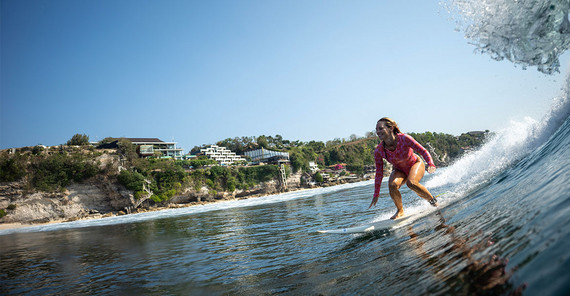Originally, she wanted to work in the field of human rights. But Marcus Schladebach, Professor of Public Law, Media Law, and Air and Space Law at the University of Potsdam, encouraged her to research environmental law. "His reasoning convinced me: Environmental and human rights are closely linked." After all, the sea was a basis of life for people, regulated the climate, and provided rain, she added. It took Von Rebay and Schladebach a year to refine her research topic. Today, the lawyer still benefits from her doctoral supervisor's commitment to finding a suitable topic with her – because it also laid the foundations for her own law firm, which specializes in marine environmental protection.
In her doctoral thesis, Anna von Rebay ultimately dealt with the legal obligation to designate marine protected areas. "These are areas in which human activities are only permitted to a limited extent or are prohibited, such as fishing bans," she explains. Her starting point at the time: At the 2010 UN Biodiversity Conference in Japan, 193 countries declared their intention to protect ten percent of the oceans by 2020 – a target that had been missed by a wide margin with around seven percent. Even three years later, only eight percent of the oceans and two percent of the high seas are protected. In her thesis, von Rebay investigated the question of whether states can be obliged to designate marine protected areas. Her conclusion: yes. International Maritime Law obliges states to protect and preserve the marine environment. However, bottom trawling on the high seas, for example, is harmful to the environment. "This method damages nature in much the same way as would clearing forests to hunt wild boar." The seabed is destroyed and many fish and bird species that the fishermen are not even after end up in the nets.
But how can the marine environment ensure that laws are followed? "The International Tribunal for the Law of the Sea and the International Court of Justice are responsible for enforcing international law. However, only states have the right to sue there," explains Anna von Rebay. There are two ways to appeal to a court: Either one state sues another – but that is unlikely to happen, because then all political relations would be at a standstill for the time being. But it is also possible to request a legal report. This expertise is not binding. "Nevertheless, it has great authority and brings clarity to the states." If the expert opinion confirms the obligation to protect the marine environment, it will in turn become more likely that one state will sue another. States could also use such reports as an opportunity to conclude treaties to protect the oceans and, for example, ban bottom trawling altogether. Moreover, this could also lead to the development of common law. "It is therefore an elegant way to hold states accountable." With her law firm, Anna von Rebay does not just bring environmentally harmful fishing methods to trial, but also deep-sea mining. In this new way of extracting raw materials at depths of 4,000 to 7,000 meters, robots use hoses to pump precious and trace metals onboard ships. The wastewater containing chemicals needed for the mining process is drained directly into the sea.
"All the threats to the sea come from humans, who behave as if nature is nothing more than a resource," says Anna von Rebay. Her law firm does not work with companies, but exclusively with foundations and organizations, in Germany for example with Environmental Action Germany (DUH), BUND, or the "Rights of Nature" network. Rebay and her three employees conduct litigation, but also work together with environmental organizations on the development of the rights of nature. The aim is to no longer view nature merely as a resource, but to protect it for its own sake. "If we grant rights to animals, landscapes, and other natural features, natural or legal persons can enforce these rights in court." And this is happening at an increasing rate: There have already been 200 lawsuits of this kind worldwide. In Germany, animals have so far been treated equally to property. Anna von Rebay and her team see an urgent need for change in this regard: They are currently working on granting the harbor porpoise its own rights in the Baltic Sea.
There is still a long way to go before almost a third of the oceans are designated as marine protected areas by 2030 – a goal that the members of the International Union for Conservation of Nature (IUCN) have set themselves. That is why Anna von Rebay is convinced: "We need a universal declaration for maritime rights to give the oceans rights on an international scale."
Law firm Ocean Vision Legal: https://www.oceanvisionlegal.com/
This text was published (in german language) in the university magazine Portal Transfer - 2024 (PDF).

